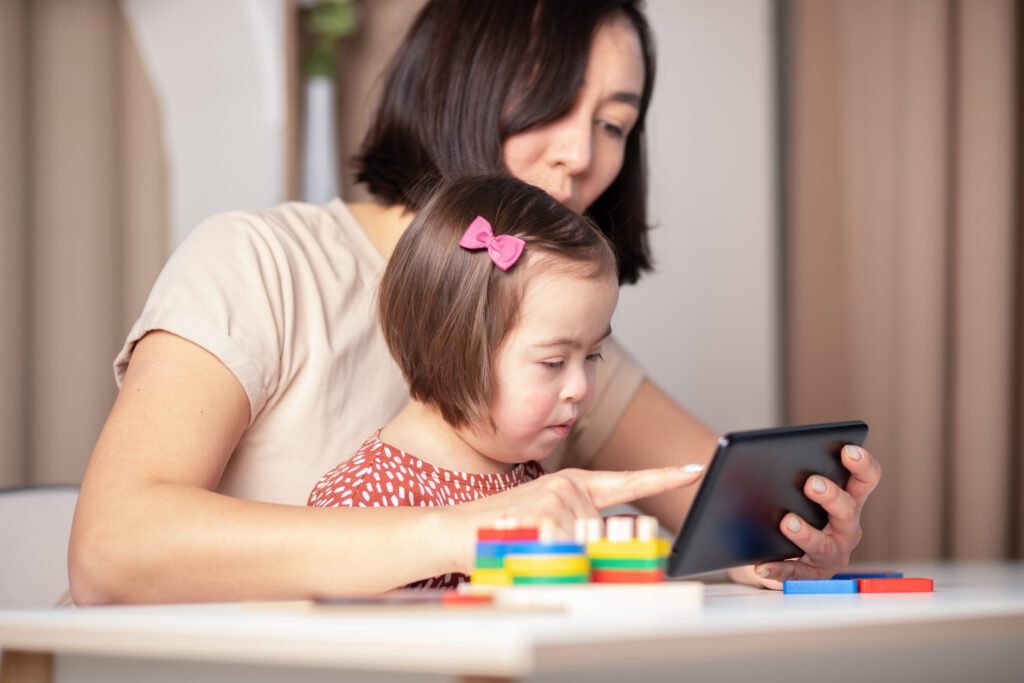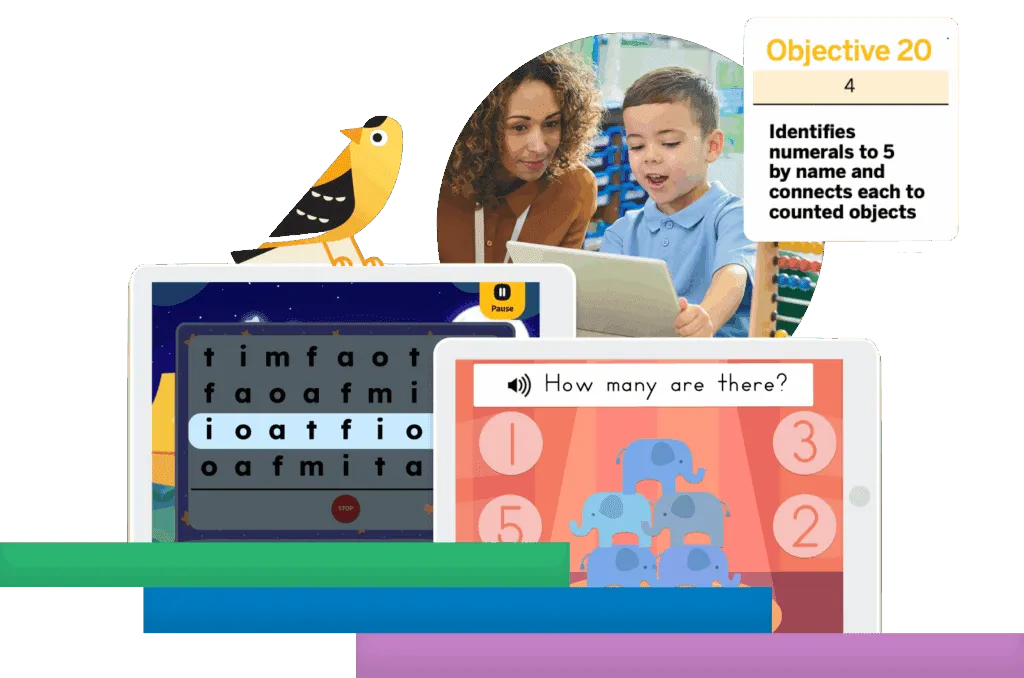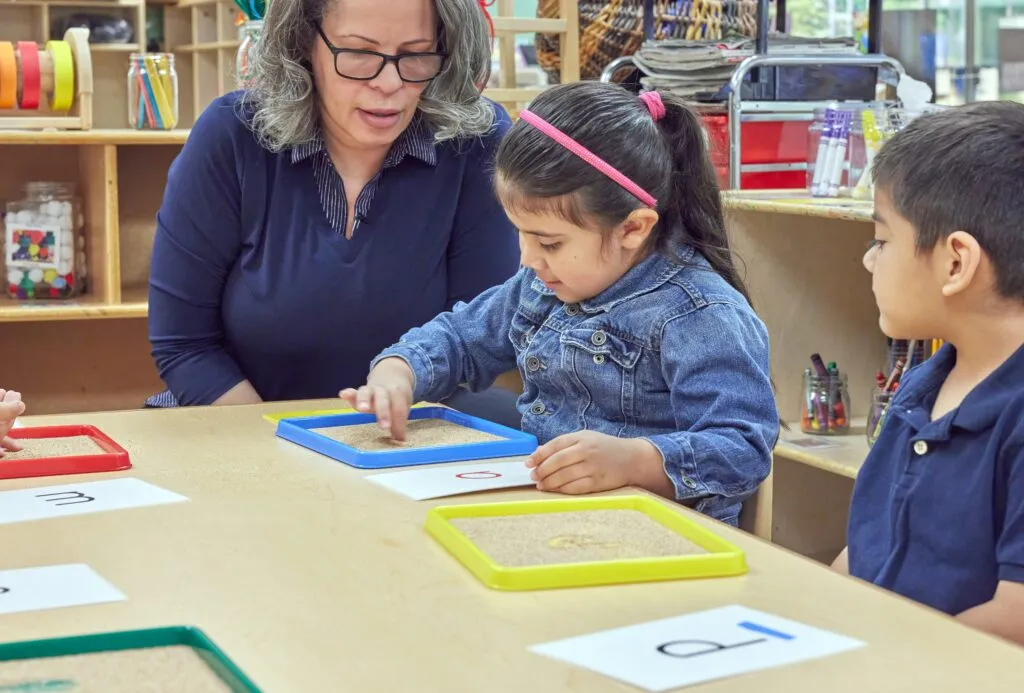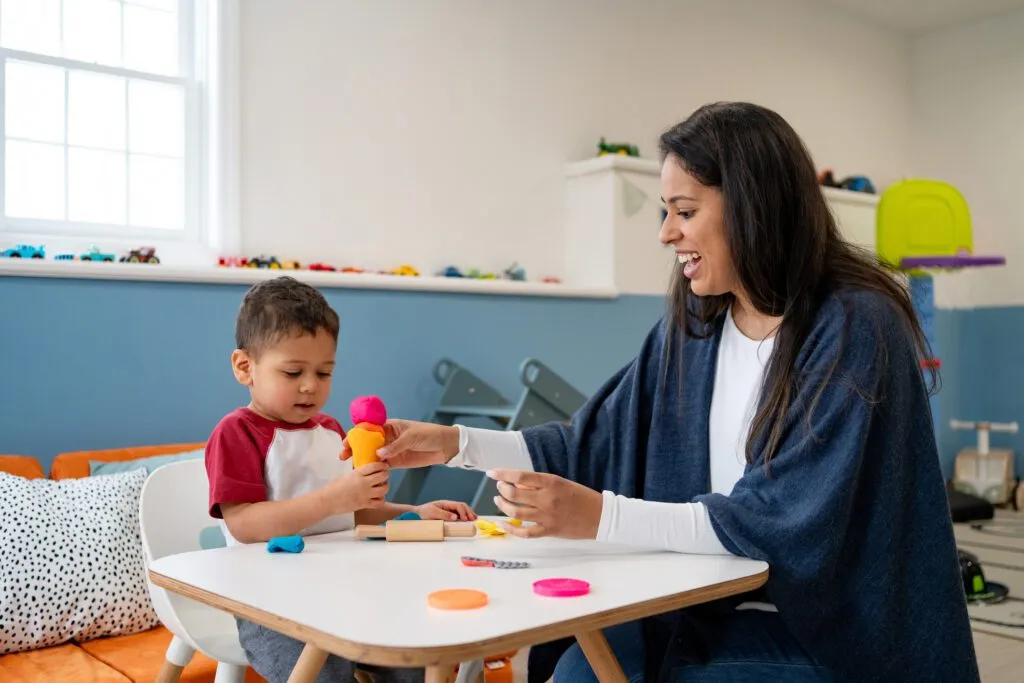Rethinking Screen Time: Turning Tablets Into Teaching Tools


My 4-year-old son has motor delays that make activities like coloring and writing especially frustrating. So we’ve been exploring ways to build his finger strength that feel fun and engaging. One approach that’s stuck is letter tracing apps.
He doesn’t always love them, but they hold his attention longer than paper and crayons. To make it more engaging, I use AI tools to create silly illustrations featuring his favorite things—like a parrot with pigeon wings riding the subway or eating pizza. These whimsical visuals give him a reason to persevere through tasks that are otherwise hard for him.
I always sit with him during these sessions, and, in our case, screen time has become a tool for connection and growth. I think a lot about how technology can support early learning both in my role as a parent but also here at Teaching Strategies, where I serve as Vice President of Product.
I’m not alone. A recent national survey shows early childhood educators are thinking about the roles of screens through a developmentally appropriate lens, too. After all, 93% of early educators surveyed said they’re already using technology tools daily in their classrooms. And 73% believe child-facing technology can have great benefits when used appropriately.
But child-facing technology is best used in moderation. The survey shows 77% of educators think it is best used with clear time limits. At Teaching Strategies, we agree. Our new GOLDFinch game-based formative assessment offering—which captures information about a child’s learning and development through interactive, child-facing games—takes just 5 minutes per child per week.
Even so, the survey findings surface a deeper challenge: access and support. More than a third of educators say it’s hard to find high-quality, developmentally appropriate tools. And perhaps most telling, 41% report they haven’t received enough training to help children use technology in meaningful ways. These numbers highlight something important: educators aren’t dismissing technology, they’re asking for better support in using it well.
As a parent, I see that need, too. Families and teachers alike want technology that adds value, not noise. I’m generally critical of adding more screen time to early childhood classrooms. I send my child to school to play, connect with others, and learn through real-world experiences—not to sit in front of a screen.
But GOLDFinch isn’t that. The games are brief and designed intentionally to give teachers data on individual children that they can’t easily gather through observation alone, such as how close a child is to blending sounds or recognizing letters. And because that quantitative information can be shared with families, it gives parents like me a clearer sense of how my child is progressing in reading readiness and how I can support him at home. That’s the kind of tool design I want to see more of, not just as a parent, but as someone who believes in the potential of technology to elevate learning.
Looking ahead, advances in AI offer powerful new ways to support educators, families and children. Rather than capturing just what a child says as the final output, AI-enabled technologies can begin to help educators understand how children think—their reasoning, persistence, and problem-solving strategies. A compelling example comes from Dr. Ying Xu at the Harvard Graduate School of Education1. In a 2024 study, Xu and her team found that young children who interacted with an AI-powered, conversational character were more verbally engaged, showed stronger conceptual understanding, and had richer conversations with caregivers about what they learned. But to turn this potential into practice, educators need more than just access to tools—they need professional development to help them interpret the data and act on it in meaningful, developmentally appropriate ways. That’s the next frontier: using technology to help teachers unlock deeper insights into how children learn and equipping them with the training and support to translate those insights into tailored instruction.
At Teaching Strategies, we believe technology should amplify what educators do best: build strong relationships, nurture curiosity, and create joyful learning experiences. The survey results show that early childhood educators are already embracing technology and want to do so thoughtfully. Now, let’s make sure they have the training, support, and tools they need to keep doing it well.

Get a fuller picture of each child’s developmental progress with Finch game-based assessments.
Citation
Xu, Y., He, K., Levine, J., Ritchie, D., Pan, Z., Bustamante, A., & Warschauer, M. (2024). Artificial intelligence enhances children’s science learning from television shows. Journal of Educational Psychology, 116(7), 1071–1092. https://doi.org/10.1037/edu0000889


